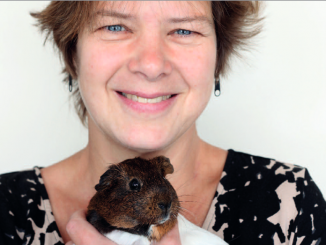
Many of the worst economic and bureaucratic burdens that have proved such a deterrent to multi-country clinical trials look set to be addressed with the overhaul of the EU Clinical Trials Directive, but should we sit back and wait for this to be done?
 Many of the worst economic and bureaucratic burdens that have proved such a deterrent to multi-country clinical trials look set to be addressed with the overhaul of the EU Clinical Trials Directive. There are strong hopes that the new legislation will reverse a trend that has seen the number of clinical trials carried out in the EU drop by 25% between 2007 and 2011.
Many of the worst economic and bureaucratic burdens that have proved such a deterrent to multi-country clinical trials look set to be addressed with the overhaul of the EU Clinical Trials Directive. There are strong hopes that the new legislation will reverse a trend that has seen the number of clinical trials carried out in the EU drop by 25% between 2007 and 2011.
The new rules will not come into effect, however, until 2016.That is a long time to wait for patients who are hoping to gain access to a trial – and for young oncologists who are keen to gain experience in conducting trials.
The good news is that we can do a lot right now to improve the situation, as has been shown in the UK, where the proportion of cancer patients participating in trials has quadrupled in a decade, from 1 in 26 to about 1 in 6. Setting up a National Cancer Research Network has helped reduce the bureaucracy associated with conducting trials and boosted recruitment by ensuring all NHS hospitals are involved in clinical studies.
There are important lessons here for other European countries, most of which have a pitiful level of enrolment in cancer trials. One is about the importance of ensuring that all patients are told about any opportunities to take part in trials. Without help and guidance, it is very difficult for patients to find out about trials that they might be eligible for, and where they are taking place. Clinical trials registries, such as the new EU register, are an important source of information about ongoing trials (www.clinicaltrialsregister.eu), but even the most informed and motivated patients find registries difficult to navigate. Revamping these key information sources to make them easier to understand will help eligible patients find a trial that is right for them.
There is also a lot we can do to help reduce the burden involved in taking part in a clinical trial. Patients prefer not to have to change to a different healthcare team or a different hospital. Requiring them to travel long distances, or undergo frequent and sometimes painful testing, can also act as a significant deterrent.Trials need to be designed to be as patient friendly as possible. Involving patient organisations at the planning stage can help by ensuring aspects that could act as a deterrent are flagged up and addressed.
Attitudes can also be a block.People who believe trials are all about using patients as “guineapigs”, or think they may get worse than the current standard of care if they end up on the control arm, will be unlikely to sign up. A concerted effort is needed to challenge such unjustified negative assumptions and highlight the potential benefits of taking part in a trial. The media can play a big role here, as is demonstrated in this issue’s BestCancer Reporter article (p 28).
The cancer community – professionals and patients – must work together now to address these barriers and promote the message that clinical trials are good for patients, good for science and good for society






Leave a Reply